Shock Midnight Ambushes, Last Gasp Duels and Paraplegic Dwarves: I’ve Been Playing Mount and Blade
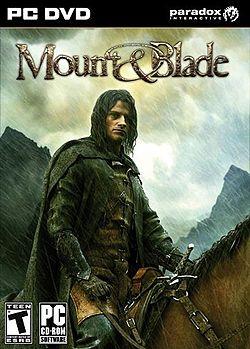 I’m not, by any means, a PC gamer: the laptop I’m using to write this is just about held together with duct tape and clumps of old twig, and I have no idea where I could even find a graphics card, let alone which one to get.
I’m not, by any means, a PC gamer: the laptop I’m using to write this is just about held together with duct tape and clumps of old twig, and I have no idea where I could even find a graphics card, let alone which one to get.
Mount & Blade, however, makes me want to become one. I’m running this thing on its lowest possible settings: reduced the character models to stickmen, the trees to papier-mâché, the textures to cardboard. I’ve stripped this game of all possible graphical fidelity to get it running OK. I mean it wasn’t all that much to start with, but now it looks like interactive diarrhea.
Yet, I’ve still decided that this is the most fun I’ve had with a game with ages. It’s one of the few games nowadays that can leave me transfixed for hours, or even days, at a time. It’s a shame then, that it’s still pretty darn obscure.
Just one little caveat before we start, though. I’m talking about the original Mount & Blade here, not the jazzed up sequel: Mount & Blade Warband. The two are pretty much the same; it’s just that Warband has a few minor improvements and tweaks, like a greater variety of quests, better graphics, better animations, the ability to flirt relentlessly with the ladies of the realm and a whole new faction to join.
There’s also multiplayer, really, really good multiplayer. If you can get Warband, get that, but the original ran better on my laptop, and I played it a load more, so I feel a little more comfortable talking about it. Although, really, everything I talk about here is applicable to Warband, even more so, probably.
Mount & Blade is an open world, action RPG developed by Taleworlds and published by Paradox interactive in 2008. Taking place in a moderately realistic fictional medieval world called Caladria, players take the role of a nondescript migrant from some distant land, come to make his or her fortune amidst the wars that have torn the country apart.
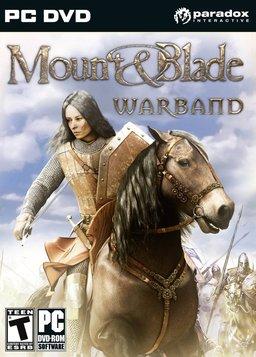 How you do that, though, is more or less up to you: do you go to a nearby city, join one of the melees, find a tournament and win it, hire some peasants and go hunt some bandits, do odd jobs for a local lord, build up your forces somehow and take over a fort? Or do you force some starving villagers to give you all their stuff, sell it in a nearby town and wash it all down with the tears of their now orphaned children?
How you do that, though, is more or less up to you: do you go to a nearby city, join one of the melees, find a tournament and win it, hire some peasants and go hunt some bandits, do odd jobs for a local lord, build up your forces somehow and take over a fort? Or do you force some starving villagers to give you all their stuff, sell it in a nearby town and wash it all down with the tears of their now orphaned children?
Whatever you do, though, you’ll find yourself lost in the intricacies of its simplistic yet deep combat system, one that has you actively aiming your sword thrusts and axe blows, timing your parries, moving tactically, feinting left before slashing from the right.
Here, the direction of your swing’s linked with the direction of your mouse, so, click the left mouse button and flick the mouse to the left and you’ll swing from left to right, or vice versa for right to left. You can hold the mouse button down to charge attack, too, gaining momentum and speed before smashing some poor sod’s thick skull in.
Admittedly though, the AI is often too basic to facilitate high level play, and fancy little things like feints are largely useless; there in case you feel like pretending you’re good at something because your girlfriend’s just left you, you’re living in your nans basement and your dad’s currently educating you with a 2×4.
The real joy of the game, however, comes in the form of these huge pitched battles wherein hundreds of NPCs duke it out in the center of a big muddy field. There are a thousand little joys to be found in being at the center of a charge that shatters the enemy lines, raising your shield against a flood of arrows, timing your strike so that horse and rider go down with one swing, and in leading the charge against the enemy fort and cutting down the rallied defenders.
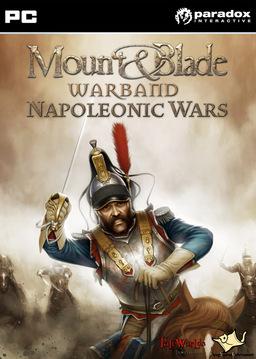 From losing your horse behind enemy lines and having to desperately hold out as your men push forward, to last gasp, nerve wracking duels on battlefields overflowing with nameless dead, of shock midnight ambushes and swirling melees in churning streams where the water runs red… Heck, just being one of the defenders on the battlements as a load of baddies come swarming in is something to write home about.
From losing your horse behind enemy lines and having to desperately hold out as your men push forward, to last gasp, nerve wracking duels on battlefields overflowing with nameless dead, of shock midnight ambushes and swirling melees in churning streams where the water runs red… Heck, just being one of the defenders on the battlements as a load of baddies come swarming in is something to write home about.
There’s far more to it than just that, though, and a whole world of depth, complexity and freedom to the game so vast you’d need thousands of spare hours to do it all. I’ve never been given so much agency in a game; you’re whacked out in the middle of nowhere and told to do whatever you damn well want. I, personally, joined a tournament, kicked the king’s hairy arse and basked in the cornucopia of medieval adoration and money that followed.
If you want, though, you can go off and start a mercenary band, or make your money as a merchant and become the ultimate bargain hunter or you could become a bandit and raid caravans and pillage villages. Whatever you do, though, you’re going to need initiative, intelligence and patience to pull it off.
This is a game that pulls no punches, where, if you venture out on your own, you’ll be dogpiled faster than you can think about bricking yourself . Where, if you don’t play your cards right, you’ll find yourself defending a castle manned by fifty men against a force of four hundred and losing everything in the subsequent defeat. Here, forces of 32 inbred peasants don’t beat 200 hundred trained knights, there are no miraculous final counter attacks and sometimes honor and integrity have to be put aside in the interest of keeping everyone and everything you’ve worked for alive.
It can be frustrating sometimes, sure, but that’s what the period was like, this was a world which, if it saw a chance to rid you of everything, you could be sure it would. In Mount & Blade you don’t get good by jumping in a corner for eight hours, you get good by learning the mechanics, understanding the game and playing your cards right.
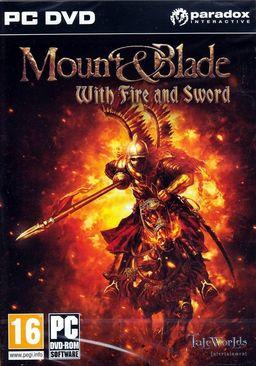 Talking dogs don’t come out of the forest, offering you quests in this game. Oh no, you have to go around asking for them, building up your relationships, proving you can handle yourself before anyone will even think about giving you important jobs. Now, again, that seems frustrating and often it is, but it’s unflinchingly engaging. The way this game leaves you to your own devices, lets you figure things out for yourself, the complete lack of direction, isn’t just fun, it’s a breath of fresh countryside air in a cluttered industry all too obsessed with swanky graphics and gentle hand-holding.
Talking dogs don’t come out of the forest, offering you quests in this game. Oh no, you have to go around asking for them, building up your relationships, proving you can handle yourself before anyone will even think about giving you important jobs. Now, again, that seems frustrating and often it is, but it’s unflinchingly engaging. The way this game leaves you to your own devices, lets you figure things out for yourself, the complete lack of direction, isn’t just fun, it’s a breath of fresh countryside air in a cluttered industry all too obsessed with swanky graphics and gentle hand-holding.
More than that, though, you have to make sure you’re making enough money to feed all your men and make sure they’re properly paid. And the better your troops are, and the more of them you’ve got, the more it costs to maintain them, but the more troops you’ve got, the better your chance of success in whatever you do: with more men you can take over forts, win larger battles and make more progress.
But you have to make sure everyone’s happy, that you’re not routinely getting your arses handed to you. You’ve got to manage disputes between party members, make sure you listen to what they say and manage their equipment if you’re to have any chance of keeping them in the party. It means there’s this constant risk-vs-reward aspect of the game, that means that, yeah, you can afford those 20 barrel chested, mustachioed bad assess with explosions instead of nostrils, but can you keep them maintained? Can you pay their wages? Have you got enough food for them?
The loop of finding enough money to pay your men and going around training and collecting recruits is constantly rewarding, and consistently entertaining. This is the meat and potatoes of the Mount & Blade experience.
And that’s fine, because exploration on its own isn’t enough to justify this game: there are no stunning vistas or rolling hills to see here, and those that are there look terrible. You can’t play this like you do Skyrim, mostly because you need to have a constant and reliable source of income if you want to maintain a proper company of dudes (and you do), but also because there’s nothing to see. The joy here comes from the way in which you make you way in the world, in overcoming of all the little challenges you’ll face along the way.
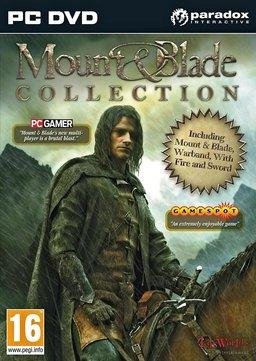 This is one of the few games out there that does morality right, too. Mount & Blade doesn’t give you an arbitrary meter that measures your level of douchebaggery… well it sort of does, in the shape of your honor level, but it doesn’t affect much. If you don’t want to be hated by everyone, you’re gonna have to work for it. Sure, charging your 6 paraplegic dwarves into battle against 8 billion foes might be noble and brave and stuff, but it probably means all your mates are going to get killed. And yeah, leaving one poor sob behind and giving him a stick to fight off the slavering horde isn’t exactly what Aragorn would do, but at least no one else has to die. Surely, it’s better to sacrifice the few for the many?
This is one of the few games out there that does morality right, too. Mount & Blade doesn’t give you an arbitrary meter that measures your level of douchebaggery… well it sort of does, in the shape of your honor level, but it doesn’t affect much. If you don’t want to be hated by everyone, you’re gonna have to work for it. Sure, charging your 6 paraplegic dwarves into battle against 8 billion foes might be noble and brave and stuff, but it probably means all your mates are going to get killed. And yeah, leaving one poor sob behind and giving him a stick to fight off the slavering horde isn’t exactly what Aragorn would do, but at least no one else has to die. Surely, it’s better to sacrifice the few for the many?
The game doesn’t tell you. You’ve got to work it out for yourself.
Then there’s the fact that becoming rich enough to actually succeed as a warlord or mercenary captain is incredibly difficult without being a bit of a phallus: winning melees and tournaments might be enough for one bloke and a few mates to live off of, but a force of five guys doesn’t last long without getting dogpiled by sea raiders and forest bandits, and playing Mount & Blade on such a small scale means you’re missing out anyway.
But a sizable band of dudes costs a lot of money to maintain, and the best way to get money is to be a bit of a phallus; Raiding villages, extorting farmers, attacking caravans, double crossing lords are all valuable and easy ways of getting the cash you’re going to need if you want to have any chance of success. You could train a village to fight off a horde of bandits, but that’s going to take time and work and by the time the bandits actually come round, your newly trained militia might all be dead and you might not have anything other than 500 coins worth of debt. You’d have been better off burning the place to the ground yourself.
There are some flaws, too: like I said, the graphics are terrible even when you haven’t turned the settings all the way down like I have. And it can get a little repetitive at times; becoming a kind of endless procession of the same five odd jobs for a couple of lords and raiding a village every so often. The game’s attempts at politics are, to put it frankly, awful, and its unforgiving nature is going to turn a lot of people off.
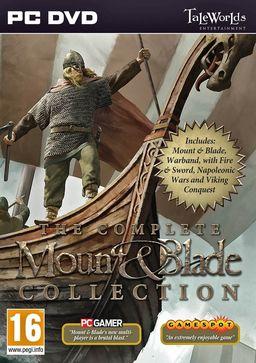 Then there’s the fact that your character — and other named characters — can’t die, they just get knocked out in battles, which takes away a lot of the intensity. Although they’re still more exciting then, say, one of the big tournaments in the city because you stand to lose all you’ve worked for over the course of the game.
Then there’s the fact that your character — and other named characters — can’t die, they just get knocked out in battles, which takes away a lot of the intensity. Although they’re still more exciting then, say, one of the big tournaments in the city because you stand to lose all you’ve worked for over the course of the game.
I can sort of understand why the player can’t die. But if named NPCs can’t die, a lot of the tension of battles is removed, so you lose out on these X-Com-esque scenarios in which your favorite warrior, Jibbo Jigglycrumbs, cuts his way through the enemy reinforcements before being stopped by a volley of arrows. Instead, you get situations where Chungus Nipplesquib, lord of the North, goes down with a javelin lodged in his throat before getting up again at the end of the battle and, his head held on only by a few stubborn sinews, asks you out for tea. It’s a missed opportunity, one that has an annoying little habit of snapping immersion in two and poking a toddler with the sharper half.
Still, though, all these flaws are negligible, tiny flecks of dirt on the face of one really big diamond, one that dispenses free candy canes, puppies and stops world hunger. It’s deep, complex, frequently engaging, intelligent and a calculator could run it. Mount & Blade laughs, bitterly, in the face of triple A game design, from its awful graphics, to its focus on player choice, it rejects the tropes video games are so rampant with.
It’s a breath of fresh air and, PC gamer or not, there’s no reason for you not to download the demo, buy the full game off Steam and pour countless hours of your life into it. Because, as ever, video games are much, much better than reality.
I’ve been a fan of this game for quite awhile. An awful lot of fun.
http://woodson26.blogspot.com/2011/10/mount-blade-great-game.html
Mount and Blade is one of the great “holy crap, it’s 3 am?! I meant to turn this off at 12…” games of all time. Always tempting to go to just one more town, take one more job, join one more battle, etc.
I recently started playing a mod based on Lord of the Rings called The Third Age. It’s REALLY good. The map is more sparsely populated (because it’s based directly on Tolkien’s), but the graphics conversion is about as good as possible given the game engine and it’s cool to be able to go to places like Minas Tirith and ride your horse up the various city levels and such. It also has a definite win/loss state, so there’s more tension than in the base game.
Lot of good M&B mods out there.
@Bob Byrne
Nice to hear, I wasn’t sure how many of you lot would actually care, I wrote the post anyway though, because I am a creature of impulse, not assuaged by stupid little things like common sense. I also enjoyed your post about it; you rambled a lot less then me, which is always good
@Andy
It certainly, certainly is. I couldn’t tell you how many potentially productive weekends I’ve lost to this game. I did consider mentioning the mods, but I haven’t tried many yet, and, in all honesty, I didn’t know what the safest palce to get them from was, and I didn’t want people getting viruses or whatever because of me. That lord of the rings mod, though, seems particularly cool. I think I’ve seen some footage of that one on youtube, if I’m not mistaken, not much though, given lets plays bore me to tears